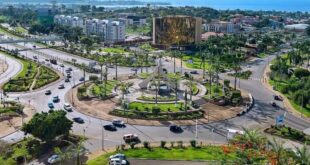
Tamale, Ghana – People, who have never taken a loan from any financial institution before, may not be able to access any form of loan because of their lack of a track record, that is according to Godfred Cudjoe of the Financial Stability Department of the Bank of Ghana.
He said, most financial institutions preferred lending money to people who have a track record of ever taking a loan instead of people who have no record at all at any of the three credit reference bureaus currently operating in the country.
He has therefore encouraged Ghanaians not to be afraid of borrowing since the act of borrowing was not a bad thing but quick to add that, “if you decide to borrow, make sure you’re borrowing for a good investment that makes returns or you’re capable of paying back the loan without defaulting”.
Mr. Cudjoe said this in Tamale on Thursday February 8, 2018 at a two-day Financial Literacy and Public Awareness Campaign training workshop for selected journalists from the Upper West, Upper East, Northern and Brong Ahafo Regions.
The workshop was organized by Trans-Media Network in collaboration with the Frankfurt School of Finance and Management and the International Finance Corporation of the World Bank Group.
The overall objective of the campaign is to effectively raise public awareness on the financial infrastructures available to access finance through the use of the Collateral Registry (CR) and Credit Reference Bureaus (CRBs) as well as promote responsible lending and borrowing for personal and business purposes.
The main aim of the training was to also enlighten the journalists on the roles and functions of the CRBs and the CR. Thus, the participants discussed key issues that the Financial Literacy campaign was seeking to address and brainstorm on the type of content and advocacy activities media houses could create for their television and radio stations, newspapers or magazines and online news portals.
CRBs are institutions (Xdsdata Ghana, Hudson Price and Dun and Bradstreet) that collect relevant information from creditors and available public sources on a borrower’s credit history.

They also compile information on individuals and firms, such as information on credit repayment records, court judgments, dud cheques and bankruptcies as well as create a comprehensive credit report/score that is sold to creditors.
According to Mr. Cudjoe, CRBs expand access to credit and lower costs of credit for good borrowers as well as allowing lenders to assess an applicant’s total indebtedness so as to enable them calculate a borrower’s capacity to service a debt.
Senior Micro, Small and Medium Enterprise (MSME) expert at the Frankfurt School of Finance and Management, Mawuko Williams, said there about 4 million and 36 million MSMEs in Africa, and yet there was a huge financing of US$80 billion in the SMEs sector and US$50 billion in the micro sector.
He observed that, MSMEs played critical roles to the economic development and prosperity of every nation including Ghana, saying “they contribute over 50 percent of GDP, over 60 percent of employment, responsible for high productivity and resource efficiency among others”.
Mr. Williams indicated that, majority of Ghanaians were employed in the private which was supposedly the engine of growth but sadly, “the private sector is not producing that much due to lack of credit to expand its operations and also employ the requisite skills or expertise to bring a lot more innovation”.
He said in order for MSMEs to expand so well and increase productivity, journalists must take it as a responsibility to sensitise them on the importance of the CBRs, CR, Ghana Post GPS or identification system and insolvency regime others.
“For instance, identification is a huge problem in credit management in the financial sector, because financial institutions have difficulty trusting the identity or address of individuals and businesses seeking credit. So a good identification system is an enabler of a responsible effective credit system”, Mr. Williams underscored.
At the end of the training workshop, a working group comprising of the over 20 journalists, was formed to embark on the campaign to do stories or create radio and television contents that would sensitise the general public and businesses to understand how they and for that matter, Ghana stand to gain if they make use the CRBs, CR and other infrastructures in the financial sector of the country.
Savannahnews
 Savannah News Online Reporting Only What Matters Most
Savannah News Online Reporting Only What Matters Most



